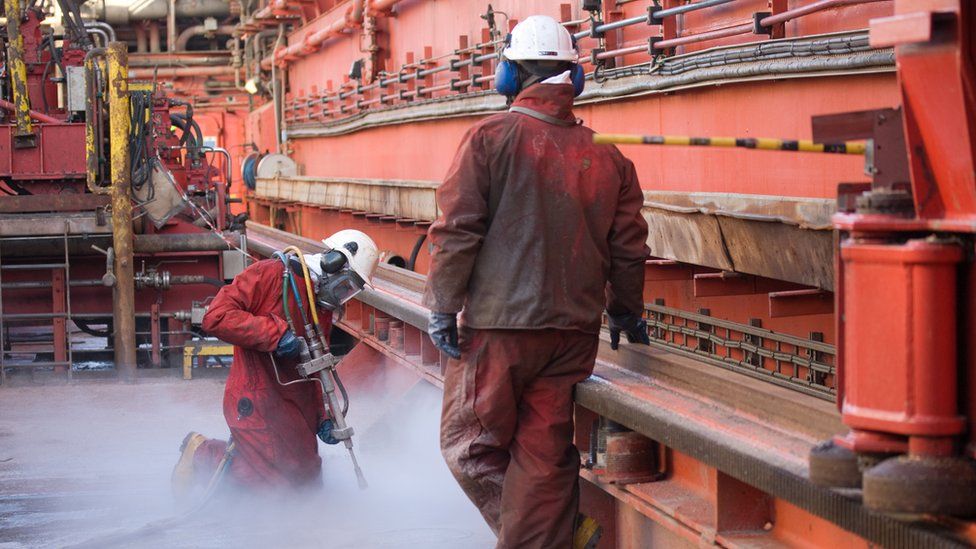ARTICLE AD BOX
 Image source, Getty Images
Image source, Getty Images
By Oliver Smith
Business reporter, BBC News
French oil giant TotalEnergies has said it will cut North Sea investment by 25% next year due to the government's decision to extend the windfall tax on oil and gas companies in the UK.
The firm, which is a major North Sea oil and gas producer, will cut £100m of spending on new wells in the region.
This is set to affect plans to drill a new well at its Elgin gas field.
The government raised the windfall tax - the Energy Profits Levy - from 25% to 35% in the Autumn Statement last month.
The increase in the tax will take place from January 2023 and remain until March 2028.
The BBC has asked the government for a comment.
"Following another change to the fiscal environment for energy investors in the UK, we are now evaluating the impact of this change on our current and planned projects," said TotalEnergie's UK chairman Jean-Luc Guiziou.
"We note that without a price floor to the EPL (Energy Profits Levy), the current regime will affect short-cycle investments, in particular infill wells.
"The energy industry operates in a cyclical market and is subject to volatile commodity prices. We believe that the government should remain open to reviewing the Energy Profits Levy if prices reduce before 2028."
Last week, Brindex, an organisation representing smaller independent oil exploration companies in the North Sea, wrote to the chancellor saying the windfall tax increase represented an "existential threat" to the industry.
Robin Allen, the chairman of Brindex, said in the letter that its members can "no longer shoulder this extreme open ended tax burden", and warned that it could impact jobs and the country's energy security.
Like TotalEnergies, Brindex has called for a price floor mechanism whereby the windfall tax would only be triggered above a certain price level for oil and gas.
"Without such a mechanism and to continue down the path of the current anticipated 75% rate, further investment in the UK has become unviable and so begins a rapid onset of the decline of the North Sea," Mr Allen said.
Both Shell and BP have said that they will review North Sea investments following the tax increase, but have not announced any specific cuts to spending in the region.

 2 years ago
44
2 years ago
44








 English (US) ·
English (US) ·